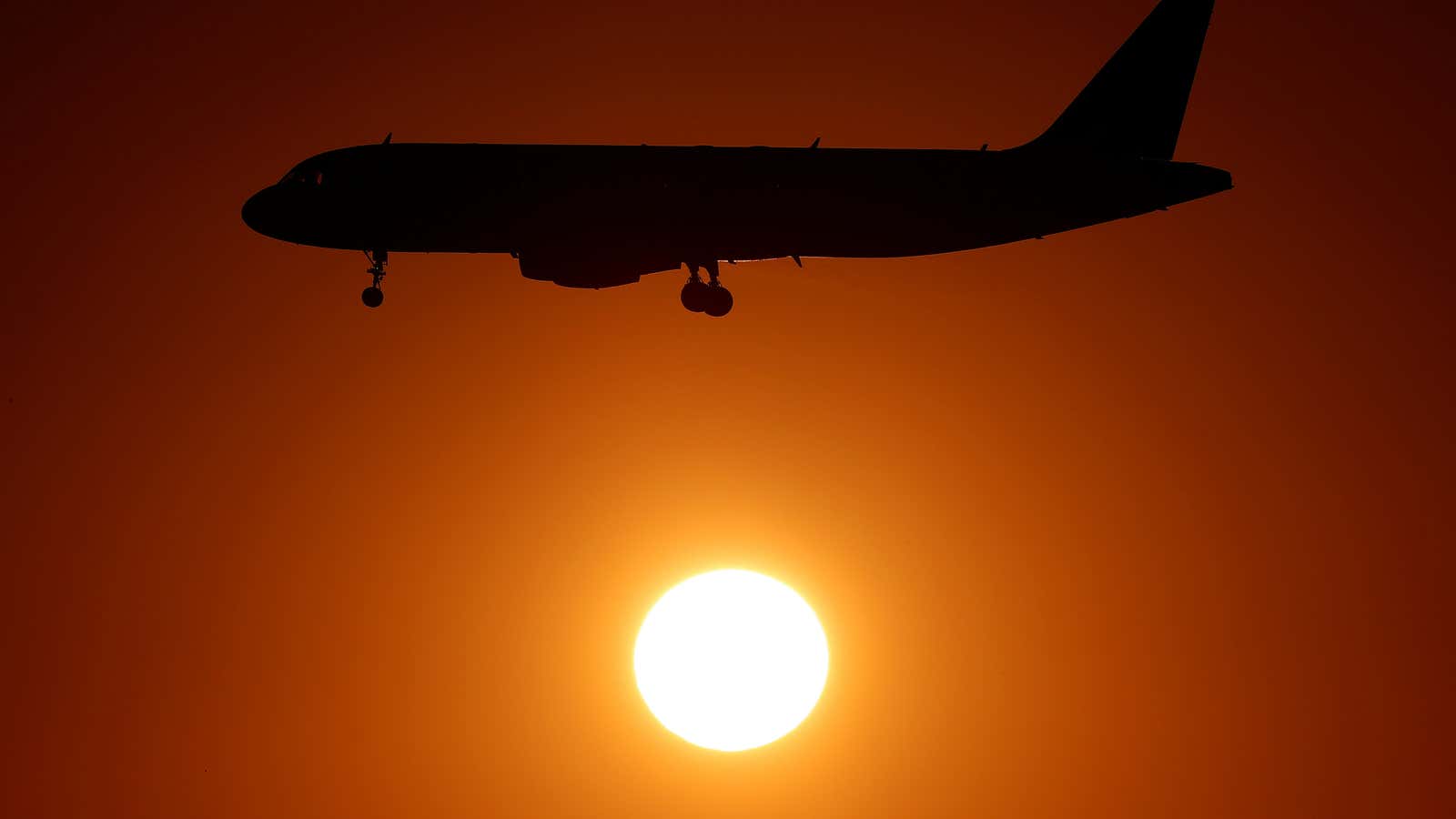The global aviation industry, a major contributor to greenhouse gases, is aiming to reach net zero emissions by 2050. But the “net” in that commitment is misleading consumers and creating legal risks for airline companies, a new study has found.
Many airlines now offer their customers the chance to buy carbon offsets along with their ticket. The premise is that the money will go toward a third-party project that prevents an equivalent volume of carbon from reaching the atmosphere as the per-person emissions of the flight. But the offset credits that airlines buy with the money are mostly cheap and of low quality, according to an Oct. 10 analysis of eight European airlines by the non-profit research group Carbon Market Watch.
The hazard of flight offsets has always been that airlines will be content to rack them up in the accounting of their corporate carbon footprint, rather than reducing emissions directly through operational and technological efficiency improvements. But Carbon Market Watch’s study suggests that not only are airlines failing to truly offset flight emissions, they may also be prolonging the transition to cleaner flying.
Airlines use too many forestry-based offsets
The problems with airlines’ offsets are the same as those across the wider offset market. The biggest is the concept of “additionality.” Does the offset actually prevent emissions that, in the absence of an offset purchase, would reach the atmosphere? This concept is especially tricky to prove in the case of forestry-based offsets, in which a parcel of forest land is “saved” from deforestation.
Investigations have repeatedly unearthed forestry-based offsets that are either linked to forests that were never at risk of being cut, or that burned down in wildfires after the sale of offsets. Yet all the airlines in the study, including Air France and British Airways, included forestry-based offsets as a key component of their offset purchasing portfolio. (In a statement to Bloomberg, both airlines said that buying offsets is just one short-term measure the companies are taking, in addition to longer-term steps toward decarbonization.) The full makeup of those portfolios is impossible to determine because of a lack of disclosure, the study found. But the average price of offsets offered by airlines—under $20 per ton—suggests that most of them are of similarly low-quality (as opposed to, for example, high-quality offsets based on direct carbon capture from the air, which run into the hundreds of dollars).
The study also found that airlines are improperly accounting for the greater per-ton warming impact of emissions released at high altitudes. And some airlines allow customers to pay a premium for credits of low-carbon speciality fuels, even though in Europe airlines will be required by law to use 5% sustainable fuels in their mix by 2030—effectively “handing their customers some of the cost of the actions they are obliged to take,” the study said.
Airlines face greenwashing accusations over carbon offsets
The use of marketing language around carbon offsets exposes airlines to new forms of legal risk. Some RyanAir ads were banned by UK regulators in 2020 for greenwashing, in part because of language related to the use of offsets. And in July, environmental groups in the Netherlands sued KLM for making misleading statements about its carbon offsets. In September, the UK airline EasyJet said it would scrap its offsetting offerings in favor of investing in more fuel-efficient aircraft.
For now, the only reliable way for travelers to curb their airline-related carbon footprint is to stay on the ground.
